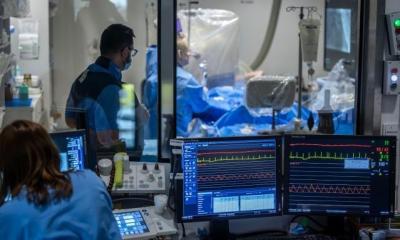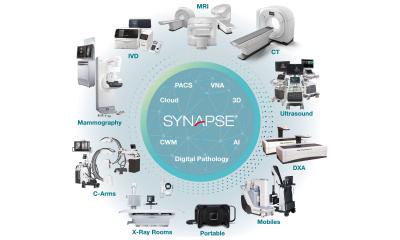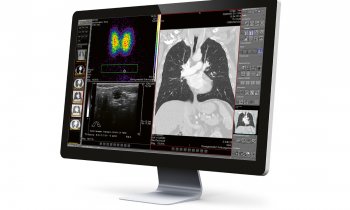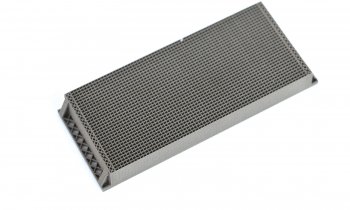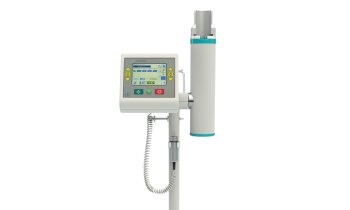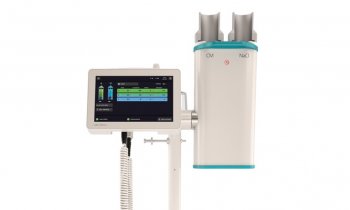Article • Challenges in Imaging
Rebuilding Russian radiology
Facing challenges common to any manager, Russian radiologists must also confront a funding crisis, system dysfunctions, self-referring patients, and head-hunters chasing staff.
Report: John Brosky
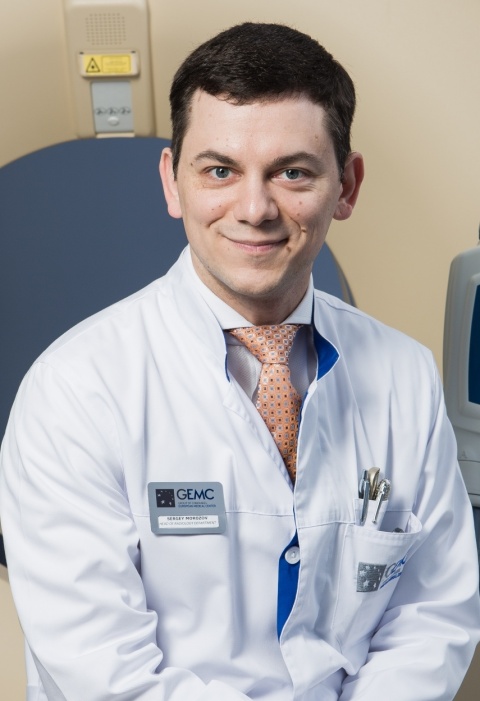
‘We are not reinventing the bicycle here in Russia,’ said Sergey Morozov MD PhD MPH. Radiologists anywhere would be familiar with the experience of restructuring imaging services for the nation’s healthcare system, he added. Thanks to a recent modernisation programme, today there are new radiology systems installed in even smaller community hospitals across the country.
‘The heads of these radiology operations face the same kinds of issues confronting our colleagues across Europe or the United States. The equipment we have is the same, the standards for operating the equipment are the same, the protocols are very similar,’ stated Prof. Morozov, who is Deputy CEO at the European Medical Centre in Moscow, and a member of the Management in Radiology (MIR) Subcommittee of the European Society of Radiology (ESR). ‘As is the case elsewhere, once you receive the equipment, you need to adopt standards, train your team in working to those standards, and then begin to work in a way that is similar with colleagues elsewhere.’
The radiologist as manager
The lessons learned to this point are also very similar. ‘We have found that a good radiologist can become a manager, but it does not mean this good radiologist is going to suddenly become a good manager,’ he laughed. ‘With the expanded number of radiology systems, and a rapidly increasing demand on the utilisation of that equipment, we now understand that doctors given charge of these departments really need specific skills to run them effectively. They need to define processes and key performance indicators,’ he added.
Prof. Morozov’s work with the ESR on the MIR committee is part of a larger effort to introduce a programme for retraining Russian doctors as professional managers of healthcare services.
The next level of challenge, he said, is to build information technology (IT) systems on top of these processes to better manage hospital departments and networks of hospitals. ‘I can tell you that IT people in Russia are the same as IT people everywhere else,’ he said. ‘They often believe that they know all the answers about how to organise workflow, for example. Yet you cannot start by making IT decisions, or you will not be free in decision for managing the processes. IT comes as a systemic solution.’
Currently there is a widening gap between the level of digitisation and IT capabilities between public and private hospitals, which are moving faster to introduce PACS and hospital information systems (HIS). ‘They can make purchasing and installation more straightforward, they are more transparent in their operation, and they can assure financing because they are structured as businesses,’ said Prof. Morozov.
‘With public hospitals this all can become more complicated,’ he acknowledged. ‘It can sometimes be difficult for public hospitals to understand why they need things like PACS or IT or HIS, and to understand why they need to find the funding for these projects.’ The good news, he said, is that there is increasingly a top-down support for IT and PACS as the heads of hospital administration see an advantage in having a visibility for what is happening inside the hospital and the ability to better manage what is going on.
Radiology as a business
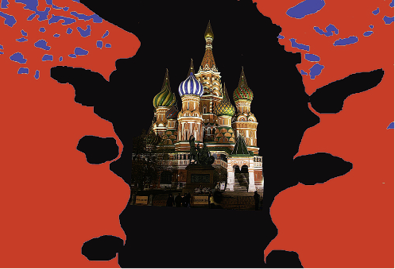
As with other European countries, the Russian healthcare system is under financial pressure with severe constraints for radiology, some of which would seem familiar, but much of which is peculiar to Russia. Prof. Morozov: ‘An important development is that, today, when we want to develop a new project or programme for radiology we need to prepare detailed business plans and financial analysis predicting cash flows. It is a recognition of radiology as a business, by the state hospitals as well as the private hospitals.’
Making a tough situation even more difficult, he said, is that financing has collapsed for the national programme of healthcare modernisation that equipped hospitals and clinics. ‘Unfortunately much of the equipment was often provided without service contracts, only guarantees for one year after installation. In addition, not all equipment was installed according to the proper specifications. This has left many hospitals without equipment service. Clearly the lesson has been learned that we cannot just buy a piece of equipment without thinking about service from the beginning; and on-going financing; and proper staffing and training.
‘In these areas we also have some challenges that are specific to Russia,’ he said. ‘A huge difference here is that many patients refer themselves for radiology exams. They do not come from a specialist or even a general practitioner. They go to Google Doctor and come to us saying they would like an MRI. I had one patient who, when I asked her what her health issue was, she answered she suffered T2 hyperintense lesions in the brain. Because there is not an absolute requirement that a physician must order a scan or radiological exam we have a major policy issue and we need to define patient flows to radiology’.
‘Another issue is that the percentage of patients who pay out of their own pockets for health services is rapidly expanding. Patients don’t always go to the appropriate public hospital service, but instead search for better diagnosis and treatment among private clinics. ‘Money has become the major driver of healthcare.
Radiologists as stars
Young doctors who wish to enter radiology must find a programme themselves, yet the program for training has not kept pace, so that hospitals and state universities cannot provide enough courses.
Sergey Morozov MD PhD MPH
‘Today, in Russia, radiology services are perceived as a source of revenue for hospitals. Radiologists have become the stars of the healthcare system. Consequently, qualified radiologists are requesting high salaries; head-hunters are after them, making it difficult to find good radiologists and trained technicians – critically, experienced radiologists who can act as managers to run a department efficiently.
‘In addition to my hospital work, I teach at the chair of radiology at Sechenov Moscow Medical University. Five years ago we would have 10 to 15 residents each year; now we have between 50 and 60. Young doctors who wish to enter radiology must find a programme themselves, yet the program for training has not kept pace, so that hospitals and state universities cannot provide enough courses.
‘This is creating a business of post-doctoral medical education in Russia where we see private companies providing specialised training courses with experienced doctors. These private companies hire radiologists to train young radiologists. Combined with a fee-for-service model of payment, this drives costs higher and higher until we see that Russia’s healthcare spend per patient is constantly increasing. With understaffed state hospitals providing patients with poor service and a lower quality of treatment and diagnosis, those who can afford it prefer to go to a private hospital.
‘The good thing is that, over the past three years, Moscow Healthcare has acquired about 150 CT and 70 MR scanners. They are now acquiring a regional PACS system from Agfa Healthcare to connect all these scanners to create a centralised Centre of Excellence that can offer second readings for other medical centres. Here we are seeing a concerted state effort in a policy to provide better standards for radiology in imaging and interpretation.
‘The Centre for Excellence in Moscow is proving a driver for increasing quality. It creates an opportunity to enhance the education and training system. Radiologists learn a second opinion is not a punishment but a systematic review to identify discrepancies. In this way people learn how to avoid any mistakes, whether in equipment use or interpretation.’
Profile:
Sergey Morozov has headed the Radiodiagnosis Service of the European Medical Centre in Moscow since 2013. An honours graduate (2002) from the Sechenov Moscow Medical Academy, he specialised in General Medicine and gained his Medical Sciences PhD for his thesis on functional MRI in 2004 and another Medical Sciences doctorate for his thesis on radiodiagnostics in orthopaedics in 2010. Dr Morozov completed multiple residencies on X-ray diagnostics in the USA (Memorial Sloan-Kettering Cancer Center), Norway (Oslo University) and Italy (La Sapienza).
06.03.2015




